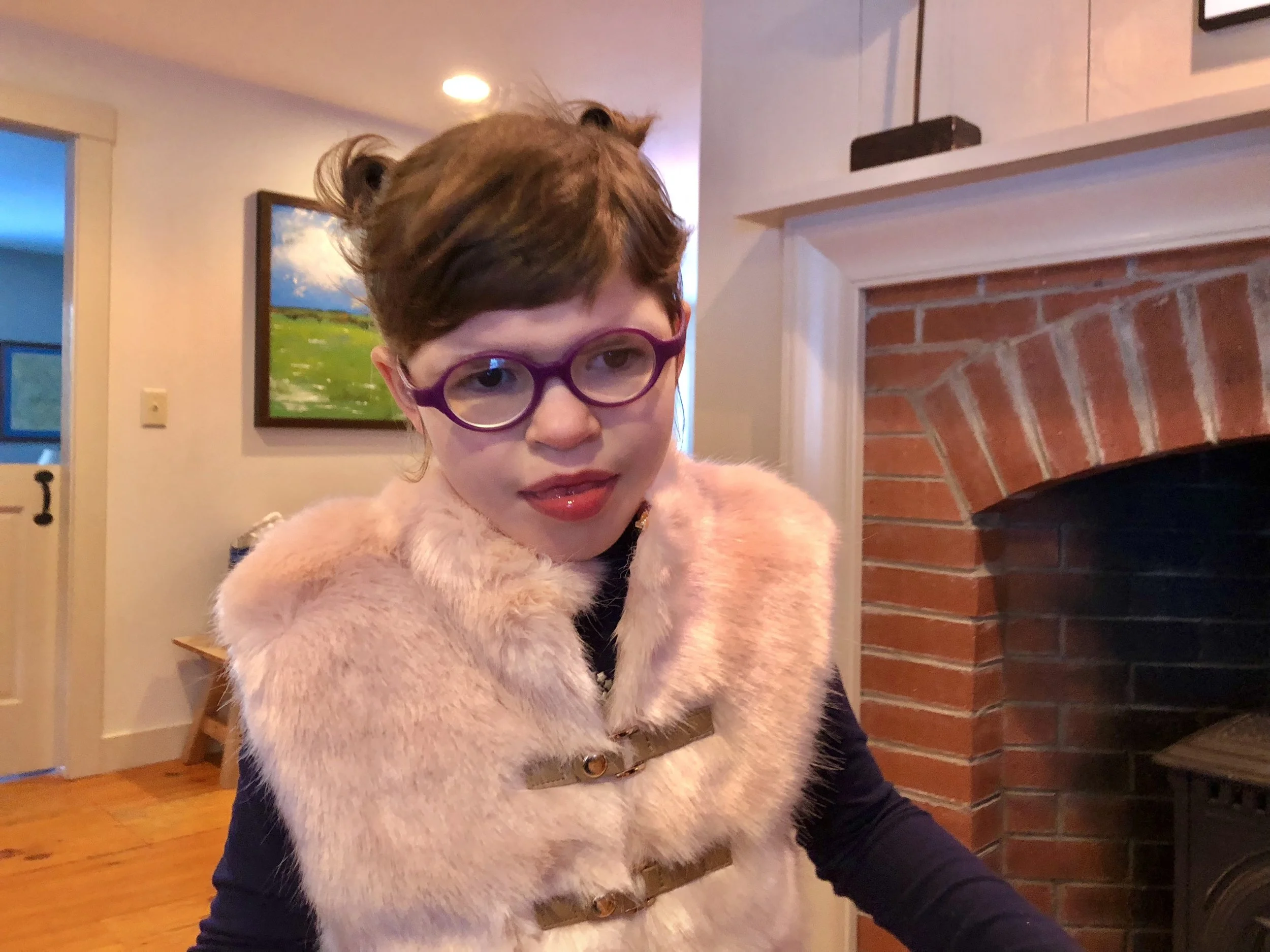For months now, we've been telling you why we're raising money. We've done this on purpose. It's because every day we all get positively bombarded with requests for money. Political stuff, GoFundMe pages, mailers, et cetera. One thing that's sure to make you tune right out is a plea for you to open up your wallet, where that plea isn't tied to anything. When people ask for your "support."
So from the beginning we've said: okay, you want to know where your donation to USP7 is going? We'll tell you. It doesn't fund anyone's salary or car or computer or office space. It goes to our phenotyping study. A scientific project that'll take place at Baylor College of Medicine in Houston, Texas. It'll cost somewhere around 11 to 13 thousand per USP7 patient, and for now we can only do it for kids in the US. For a patient like Tess to be part of the study, they'll spend a couple full days of testing at Baylor. They'll take blood and tissue samples, get an x-ray. Look at autism behaviors. Check out growth hormone levels. And the point of the study is to get a better handle on what this disease is. To better define it.
Because let's face it, right now it looks like a ton of other diseases. Things like Angelman Syndrome. And Prader-Willi. If we can set USP7 apart as its own disease, then we can go about giving it a name. A name catchier than USP7 Related Disease. (Sarcasm alert: I know it's hard to imagine a name catchier than that, right?)
Well, I have great news about our fundraising and the phenotyping study: we did it. We got there. We've met our goal. It happened. One big boost was from a $30,000 check we got from Manger La Vie. That's the USP7 foundation that's based in France, the one that was started by Zoe's parents Olivier and Stephanie. Another big thanks to Olivier and Stephanie for that monster check. And so now we're in uncharted territory with our fledgling foundation. We've met our goal of funding the phenotyping study. We're making plans with Baylor now to schedule all the kids to come to Houston starting next spring for the study. So we've gotta ask the question. If we've funded that study, what's next?
To find out what's next, while in Vegas we talked at length to a man, a scientist who lives in Memphis. He's been with our foundation on our scientific advisory board from the beginning. He's one of the main authors of that first USP7 paper, the one that came out in fall 2015. His name is Ryan Potts. He's soft-spoken, has a slight southern twang when he talks. He's shown us time and again how committed he is to using his lab to help our tiny band of USP7 folks.
And Ryan told us the two projects we should start looking at for our next fundraising goal. Project one: look at the mice. Someone's gone into a lab and tinkered with the genetic makeup of a mouse so it has the USP7 mutation in it, so we have what's known as a USP7 mouse. And how as part of project one, we're going to start looking at the physiology and behavior of USP7 mice.
And project two: look at a special kind of mutation. It happens to be the exact kind that Tess has. It's called a missense mutation. (Hang in there, the super science-y part of this post is almost over. You're doing great so far.) Missense mutation is a pretty simple concept, actually. Remember those nucleotides that make up your DNA sequence? You might have learned them in biology in high school. Their initials are A,C,T and G. Well, they go in our cells in a very specific order. Where they wind up is really important. They literally spell out who we become. And if you take one out, and replace it with another one accidentally, then the incorrect amino acid gets stuck in there. That's it. One letter, and everything can go haywire. And that's what Tess has. Where she's supposed to have a G, instead she's got an A. And what Ryan says we ought to do now, as part of project two to fund next, is look at those mutations. Look at what happens when you have one of those, as compared with a typical individual, who doesn't have those kinds of mutations. And ask: do missense mutations affect the USP7 protein's function in some way? If we do that, then we can get a much better idea of what exactly happens in a cell when you have a mutation in USP7. Then we can start thinking about the best way to treat that.
So that's what we're funding next, folks. Two types of studies. One that looks at USP7 mice, the other that looks at missense mutations.
Please DONATE TODAY through our foundation’s website: https://www.usp7.org/donate
